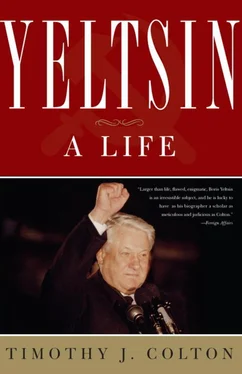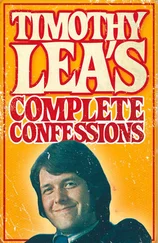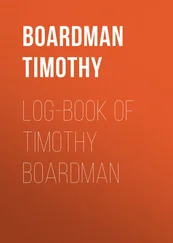The sleepy community of Butka nestles just inside the southern and the eastern, Asiatic, margin of the middle Urals in undulating countryside mantled in birch, larch, red pine, and poplar. It lies at 56° 43’ north, the same line of latitude as the Alaska panhandle and Dundee, Scotland, and at 63° 46’ east, the approximate longitude of Herat, Afghanistan. It is 1,100 miles (two time zones) to the east of Moscow, 170 miles east of the continental divide, and 150 miles east of the largest Urals city, Yekaterinburg, known from 1924 to 1991 as Sverdlovsk. Butka is not as well-endowed agriculturally as many corners of the Urals, and there are few minerals nearby. The name means “porridge” in the languages of the Tatars and Bashkirs, the Turkic groups whose tribes, before their subjugation to the Russian crown, held sway in the swath of territory straddling the southern and central Urals. The reference is to the swampiness of the site, on the Belyakovka River. 1The shallow and silty Belyakovka, less than fifty miles in length, curls southwest to northeast through Butka, where it was fifty feet wide in 1900; it is twenty or thirty feet wide there today. Through the Pyshma, it drains lazily into the Tobol, Irtysh, and Ob Rivers in west Siberia (the Irtysh and Ob form the world’s fourth longest river system) and on to tidewater at the Arctic 700 miles away.
Legend has it that the Russians who initially settled at Butka were deserters from the host of Yermak Timofeyevich, the Cossack buccaneer who carried Ivan the Terrible’s writ over the Urals in the 1580s. Be that as it may, we know from the state chronicle that on November 1, 1676, the governor of Tobol’sk, the Russian fort at the junction of the Tobol and the Irtysh, granted a petition by the peasants Ivashka Sylvenets and Tereshka Ivanov for leave to found a sloboda, a government-chartered village, at Butka. They were to survey the spot, construct a palisade against raiders, and “invite free and unattached people” to move there. 2Built to secure Russia’s borderlands, villages of this type offered peasants arable land, tax exemptions, and a measure of self-government. Butka had expanded bit by bit to a hundred souls when the German naturalist and explorer Johann Georg Gmelin came upon it in 1746, and to 825 in the imperial census of 1897. The nearest towns of any size were Shadrinsk, the district seat, fifty miles to the south on the Iset River, and Talitsa, on the Pyshma, twenty miles north of Butka and astride the highway and railroad to Siberia. Transport to and from the village was either by water or, if by land, along a horse trail to Talitsa, which it took ten or eleven hours to cover most seasons of the year and twice as long during the vernal and autumnal muddy seasons. 3
Unpretentious Butka in 1900 shared much with the habitat of most of the tsar’s subjects. It was now a regular village (selo), a category for a relatively large settlement with a parish church and some government offices. There was no trace of the palisade. One-story wood cabins, thatched and with hand-carved window frames, and heated by tiled clay stoves, hugged several main streets and the rutted byways that meandered off from them. Everyone kept a dairy cow and tilled the fields rimming the village and the potato and vegetable patches out their back doors. The average growing season in Butka being 150 days and the soil being saline, seldom did the surfeit for the market amount to much. The young and strong cut timber or worked in the sawmill opened in 1914, which had 100 employees. Handicraftsmen made barrels, pottery, coal-tar soap, boots, and fur hats and put together sledges, carts, and spinning wheels. Amenities were sparse. The Orthodox Church of the Presentation of the Blessed Virgin, built in stone around 1800, had a wood attic and a belfry adjacent. Water was taken from wells and roadside pumps, and women did their laundry by hand in the river. There was a small library as of 1908 but no school and no doctor. A few clerks were the only representation from government.
In other respects, Butka was uncharacteristic of Russian rural society. People in it and its rustic surroundings, going back to the order of 1676 and the welcome mat to the free and unattached, had been spared the serfdom that stultified most of European Russia from the sixteenth century until abolition in 1861. Like most agriculturalists in the Urals and Siberia, they were classified as “state peasants,” who were at liberty to change abode and marry as they wished, were judged in the civil courts, and owed a fixed rent to the government, not manorial service to a landlord’s estate. In mentality, they were more like pioneers than like the serfs, whose status differed little from the black slaves in the United States. 4Two pre-1914 ethnographic portraits of the Russians in these parts were fully applicable. “Our peasant,” wrote one, “is sturdy beyond belief,” toiling in the fields sunup to sundown, rain or shine, and “will not complain until things have become completely unbearable.” 5Said the other, “The population is bright and clear of mind and possesses accuracy of speech and an unflappable, playful sense of humor. While not devoid of the widely known [peasant] slyness, it is keen and imitative. It masters its favorite tasks and is good at accommodating itself to any kind of labor.” 6The asperity of the climate, rugged topography, isolation from central Russia, and low population density bred the virtue encapsulated in a noun resonant in Urals lore: samostoyatel’nost’, or self-reliance (self-rule in the group context), literally the ability to stand on one’s own feet. At river fords and crossroads that were the merest specks of light in a vacuity, nothing except gumption and hardiness under adversity stood between the colonists and extinction.
Religion backed up legal categories and geography. Many Slavic settlers in the Urals were disciples of the Old Belief, the purist sect that seceded from Russian Orthodoxy in the 1650s in a schism over liturgical practices. There was an eschatological streak to the Old Believers; a spirit of outback resistance to the absolutist state and its bailiffs, foresters, and military recruiters; and a line of self-willed martyrs, “men who could keep silent no longer” in the face of ungodliness and injustice. 7Their reserve, frugality, and diligence in all things economic were “to a certain extent… reminiscent of the Protestant ethic” in the West. 8In all of the guberniya (province) of Perm, the largest in the Urals in the late tsarist period, the Shadrinsk district was one of the three with the heaviest concentration of dissidents. 9There were pious and not-so-pious Old Believers up and down the Belyakovka Valley. They prayed with their brethren in peasant houses, there being no chapels or ordained clergy for them, and often participated in Orthodox parishes. 10
The Yeltsin surname derives from yel’, Russian for “fir tree,” and is a fairly common one in the region. 11The ancestors of Boris Yeltsin were age-long inhabitants of the Urals and adjoining parts of Russia’s north, probably since the fifteenth century. They are thought to have migrated from Novgorod, the principality opening out to the Baltic and distinguished by its local assembly, private property, and trade with Scandinavia and the Hanseatic League; Novgorod was devoured by Muscovy in 1478. Courtesy of the archivist Dmitrii Panov, there is a genealogy on the father’s side spreading back eight generations to one Sergei Yeltsin, a state peasant registered at the start of the eighteenth century in the village of Basmanovo, or Basmanovskoye. Basmanovo was half again as big as Butka (its 1897 population was 1,307) and is located eight miles south, upriver on the Belyakovka. The connotations of the name were better than those of Butka. Basman, imported from the Tatar, refers to a loaf of bread baked for the royal court and stamped with its badge. 12Sergei’s son Anika made his home in Butka, his grandson Pëtr in Basmanovo, and his great-grandson Ivan in Beregovaya, two miles downriver from Butka. Commencing with Boris Yeltsin’s great-great-grandfather, Savva, whose year of birth was 1807, and his great-grandfather, Yekim, born the fifth of Savva’s eight children in 1841, the family hearth was in Basmanovo. 13Another branch of the Yeltsins hailed from the hamlet of Konovalovaya, on a tributary of the Belyakovka fifteen miles to Butka’s east. Except for the odd soldier (an Ivan Yeltsin fought against Napoleon at Borodino in 1812, in the Yekaterinburg Regiment), the menfolk did not stray from the Basmanovo-Butka-Beregovaya-Konovalovaya quadrangle. 14The Basmanovo subgroup originally spelled the name “Yeltsyn,” and in Konovalovaya it was “Yel’tsyn.” The name was standardized to “Yel’tsin” after 1900. (I use the anglicized “Yeltsin.”)
Читать дальше












